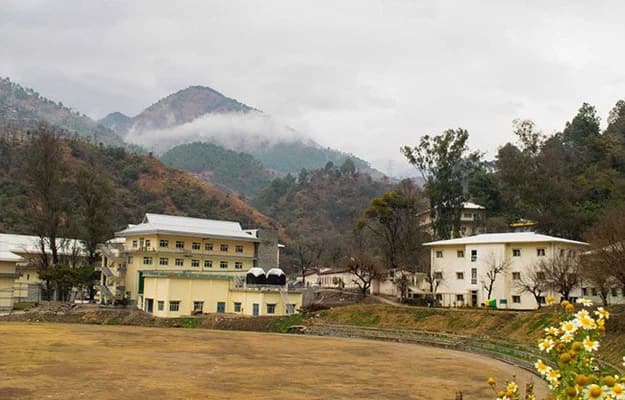IIT Mandi develops AI algorithm to improve accuracy of landslide prediction
Mridusmita Deka | February 21, 2023 | 02:08 PM IST | 2 mins read
The results of the IIT Mandi researchers' work have recently been published in the journal Landslides.

NEW DELHI: The Indian Institute of Technology (IIT) Mandi researchers have developed a new algorithm using Artificial Intelligence and Machine Learning (AI and ML) to improve the accuracy of prediction for natural hazards. The results of the work have recently been published in the journal Landslides, an IIT Mandi statement said.
The algorithm developed by Dr Dericks Praise Shukla, Associate Professor, School of Civil and Environmental Engineering, IIT Mandi, and Dr Sharad Kumar Gupta, former research scholar, IIT Mandi, currently working at Tel Aviv University (Israel), can tackle the challenge of data imbalance for landslide susceptibility mapping which represents the likelihood of landslide occurrences in a given area.
Also Read | IIT Mandi researchers analyse factors affecting adoption of wearable health monitors
Landslides, the IIT Mandi statement reiterated, are a frequent natural hazard in mountainous areas around the world, causing significant losses of life and property. To estimate and eventually mitigate these risks, it is essential to identify areas that are susceptible to landslides. A Landslide Susceptibility Mapping (LSM) indicates the likelihood of a landslide occurring in a specific area based on causative factors such as slope, elevation, geology, soil type, distance from faults, rivers and faults, and historical landslide data.
Also Read | IIT Mandi conducts research on why listening to sad music helps in times of sadness
The use of Artificial Intelligence (AI) is becoming increasingly vital for the prediction of natural disasters such as landslides, IIT Mandi statement added.
They can potentially predict extreme events, create hazard maps, detect events in real-time, provide situational awareness, and support decision-making.
Dr Shukla’s team has developed a new ML algorithm that overcomes this issue of data imbalance for training of the algorithm. It uses two under-sampling techniques, EasyEnsemble and BalanceCascade, to address the issue of imbalanced data in landslide mapping.
Data about the landslides that occurred in the Mandakini River Basin in northwest Himalaya, Uttarakhand, India, between 2004 and 2017 were used to train and validate the model. The results showed that the algorithm significantly improved the accuracy of the LSM, particularly when compared to traditional machine learning techniques such as Support Vector Machine and Artificial Neural Network.
Elaborating on the uniqueness of their work, Dr DP Shukla, Associate Professor, School of Civil and Environmental Engineering, said, “This new ML algorithm highlights the importance of data balancing in ML models and demonstrates the potential for new technologies to drive significant advancements in the field. It also underscores the critical need for large amounts of data to accurately train ML models, particularly in the case of geohazards and natural disasters where the stakes are high and human safety is at risk.”
Follow us for the latest education news on colleges and universities, admission, courses, exams, research, education policies, study abroad and more..
To get in touch, write to us at news@careers360.com.